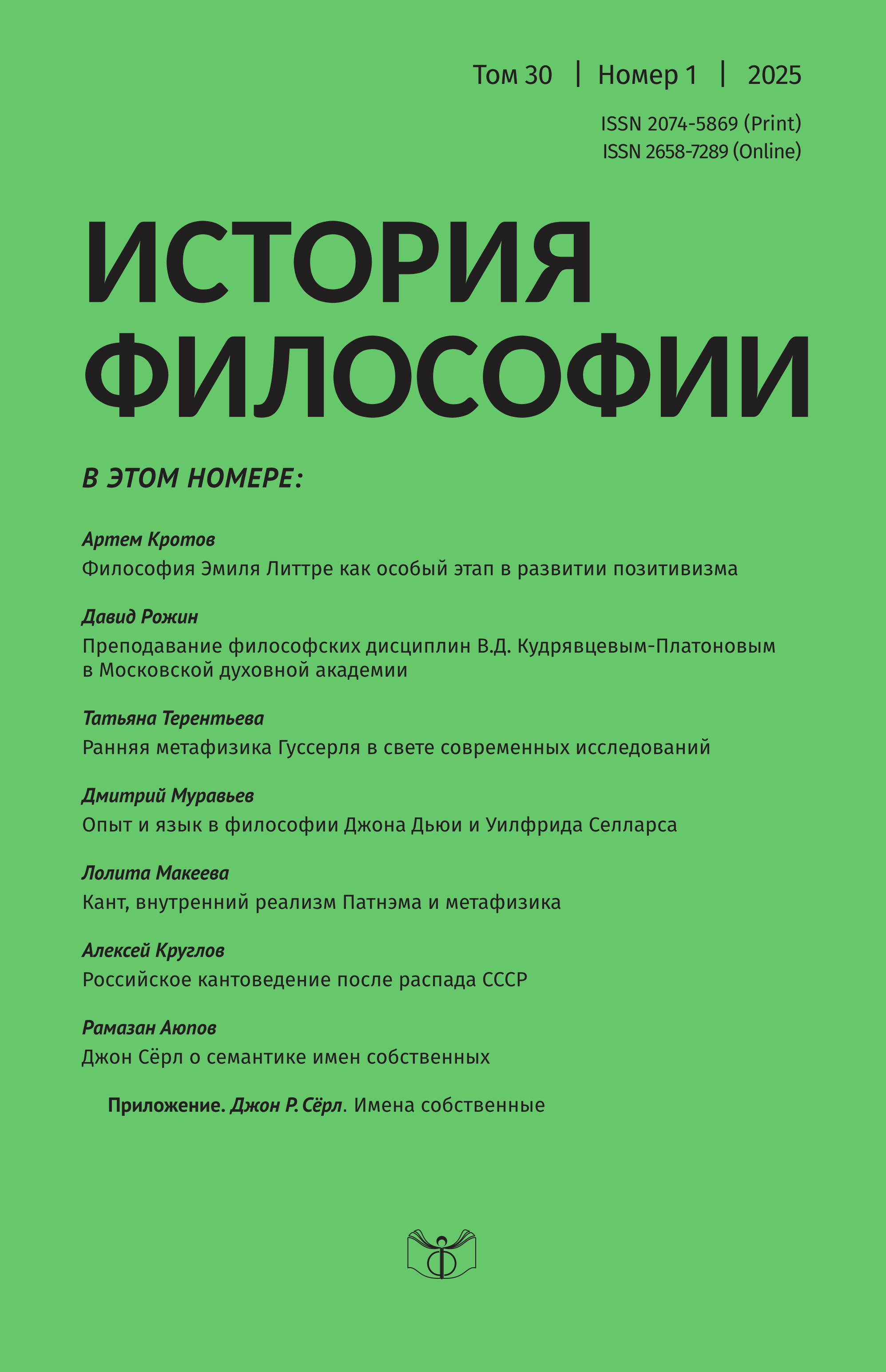Philosophy of Émile Littré as a Special Stage in the Development of Positivism
DOI:
https://doi.org/10.21146/2074-5869-2025-30-1-17-28Keywords:
E. Littré, A. Comte, positivism, French philosophy, criticism of metaphysics, political philosophyAbstract
The article analyzes the doctrine of one of the most influential disciples of Auguste Comte. The appeal to his work is determined both by the need to make up the most complete, detailed picture of the philosophy of the New Age, and by the importance of assessing the prospects of scientism in the modern world. Positivism was not a stiffened, unchanging theoretical construct, while
Littré’s legacy allows to look at its evolution from outside the box. Littré, who turned to philosophy under the direct influence of Comte’s main work, remained faithful to the attitudes of his teacher all his life. These are the idea of the law of three stages, the general classification of sciences, the doctrine of the inaccessibility of “absolute” knowledge. At the same time, Littré significantly
rethought the content of positivism when he rejected Comte’s religion of Humanity and his system of positive politics. Pinning his hopes on science, linking primarily with it the future of mankind, Littré sought to avoid the traps of utopian schemes developed by the late Comte.

